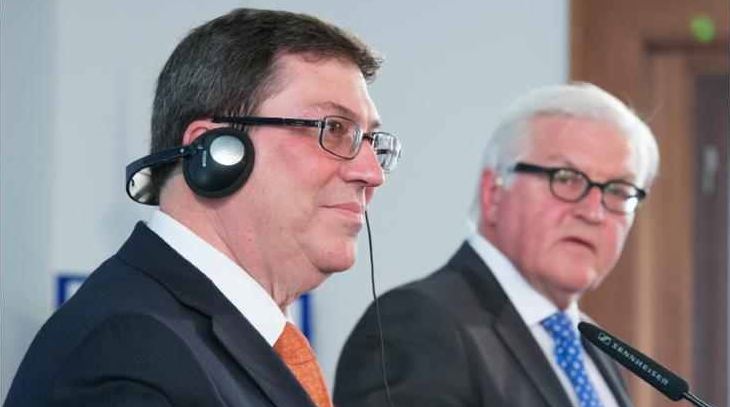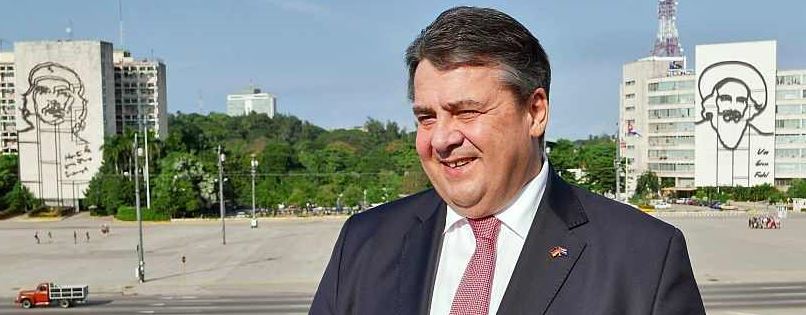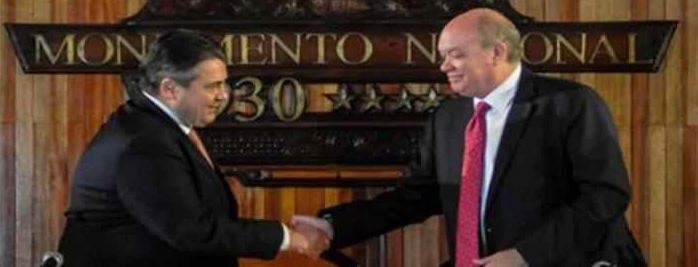
Cuba, Germany seek stronger trade and cultural ties
Germany’s Foreign Minister, Frank-Walter Steinmeier, congratulated the Cuban people on “overcoming the Cold War” and expressed “great interest” in establishing closer relations with the island nation.
He made those statements Tuesday (May 10) during a meeting in Berlin with his Cuban counterpart, Bruno Rodríguez Parrilla, on a three-day mission to that city, the first visit there of a Cuban foreign minister since the reunification of the two Germanies in 1990.
Relations between Germany and Cuba have improved since Steinmeier’s trip to Havana in July 2015, and the visit by Germany’s Economic Affairs Minister Sigmar Gabriel in January of this year at the head of a delegation of 60 business executives.
(For background, click here and here.)

Steinmeier said that now, after “years of stagnation” in German-Cuban relations, work could begin on a “mutually advantageous partnership.” To begin it, the two countries are working on a cultural agreement and are preparing to establish a German trade office in Havana.
Closer political and economic ties will follow soon because “Germany’s interest in Cuba is great,” Steinmeier said. Still, he added, “change does not occur overnight.”
On some issues, such as civil and human rights, “different views” remain, the German diplomat said. At the same time, he said that Europe has “underestimated” Cuba’s positive role in the Americas, pointing to Havana’s mediation between Colombia and the FARC rebels, a dialogue that is still ongoing.
Steinmeier referred to the U.S.-Cuba rapprochement as “a truly epochal event.” Rodríguez agreed that President Obama’s visit to Cuba in March was “positive,” but remarked that parts of the U.S. trade embargo remain unchanged. That fact could represent an obstacle to German-Cuban trade relations, he said.
In this visit, Rodríguez is accompanied by the Cuban Foreign Ministry’s cabinet secretary, Bárbara Elena Montalvo, and the director of Bilateral Matters, Gerardo Peñalver Portal, who was Cuba’s ambassador to Germany 2005-2013.
On Monday, the first day of their visit, the Cuban officials met with representatives of the Otto Bock Group, which specializes in medical products and technology. They also toured the Bundestag (Parliament), where they were guided by Wolfgang Gehrcke, a member of the leftist party Die Linke. (Steinmeier and Gabriel are members of the Social Democratic Party, or SPD.)

According to the German Foreign Ministry, Germany exported about 258 million euros to Cuba in 2015, up from 191 million euros in 2014. Cuban exports to Germany in the same period amounted to 35 million and 33 million euros respectively.
Germany provided mainly cereals, machinery, chemical and pharmaceutical products, plastic products, medical equipment, motor vehicles and spare parts. Cuba reciprocated with alcoholic beverages, tobacco, honey, and fruit and vegetable juices.
German tourism is “another important element of bilateral economic relations,” the foreign office says. In 2015, the number of German visitors to Cuba was just under 175,000, out of a total of 3.5 million foreign tourists. This represents an increase of about 25 percent over 2014. After Canada and the U.S., Germany was the third-ranking country of origin.
[Photo at top: Bruno Rodríguez and Frank-Walter Steinmeier in Berlin on Tuesday.]

